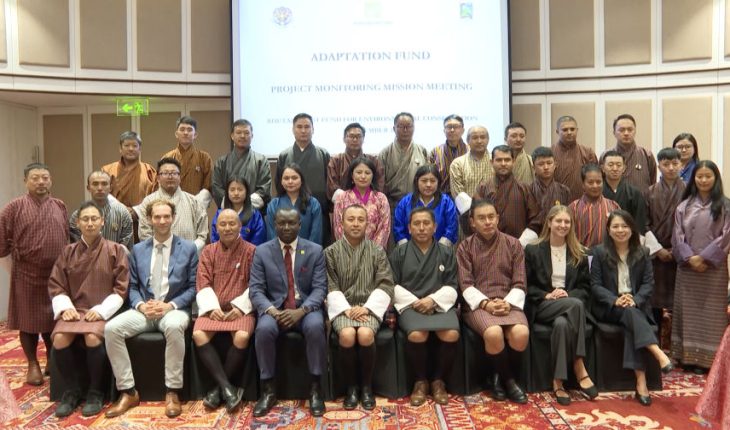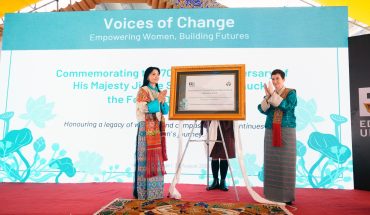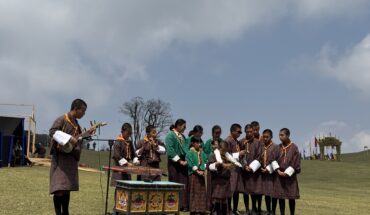
KINZANG DORJI TSHERING | Thimphu
A team from the Climate Change Adaptation Fund is in Bhutan to review climate resilience projects in the country.
The mission, which will include site visits to project areas in Paro, Dagana and Tsirang dzongkhags, is being seen as a crucial opportunity for Bhutan to highlight its achievements in climate adaptation and secure further international support.
Dr. Karma Tshering, Managing Director of the Bhutan Trust Fund for Environmental Conservation (BTFEC), the national implementing agency for the Adaptation Fund said that Bhutan’s vulnerability to climate change, particularly in its fragile ecosystems of glaciers, rivers, and forests.
“The Adaptation Fund was created with the conviction that those most vulnerable to climate change must not wait for promises. For Bhutan, adaptation is not just an option—it is a necessity,” Dr. Karma Tshering said.
He also highlighted Bhutan’s landmark status as the only country in the region with a national implementing entity accredited under the Adaptation Fund.
“This is not just a technical achievement, but a national milestone,” he said, adding that the accreditation demonstrates Bhutan’s capacity to manage international finance with integrity and in alignment with national priorities.
Currently, Bhutan is implementing the Adaptation Fund–supported project “Adaptation to Climate-Induced Water Stresses through Integrated Landscape Management in Bhutan,” with a financing package of USD 9.99 million.
This flagship project, known locally as the Blue Project, addresses water scarcity, watershed management, and community resilience.
Bhutan has also accessed innovation grants, including a large grant of USD 4.98 million for the InAF-Bhutan initiative, making it the only country to have secured both small and large innovation financing from the Adaptation Fund.
Namgyel Dorji, Officiating Director of the Department of Macroeconomic and Development Finance, Ministry of Finance expressed gratitude to the Adaptation Fund board and secretariat for their support.
“The Adaptation Fund has been instrumental in reducing one of the most pressing climate challenges—water scarcity—while improving resilience in rural communities,” Namgyel Dorji said.
He noted that the current mission provides a platform to review progress, highlight key accomplishments, and confront implementation challenges.
Since 2018, the BTFEC has secured USD 12.5 million, benefiting over 37,000 people.
Bhutan is also part of the Locally Led Adaptation initiative, while the Fund globally has supported 183 projects for 46 million people.
The Ministry of Finance is also working on creating additional national entities to directly access adaptation finance, further strengthening Bhutan’s institutional capacity.
Namgyel Dorji stressed that strong partnerships will be vital to drive meaningful, sustainable development and create resilient systems capable of responding to emerging challenges.
Rinchen Namgay, Officiating Director of the Department of Water under the Ministry of Energy and Natural Resources, highlighted progress made under the government’s flagship water program.
“The project aims to build resilience to climate change in water-stressed communities across Haa, Paro, and Tsirang,” Rinchen Namgay said.
Over the past three years, the program has brought more than 431 acres of land under sustainable management practices, completed two of three irrigation schemes in Tsirang, and improved watershed conditions across 600 hectares.
Nearly 3,000 farmers, including women and youth, have been engaged in the project.
Rinchen Namgay emphasized that the locally led interventions combine physical infrastructure with knowledge building, laying the foundation for long-term water security.
Justice Issah Surugu, Climate Change Specialist with the Adaptation Fund, commended Bhutan’s preparedness and commitment.
“This is not an evaluation mission, but an assessment to engage with stakeholders, learn from Bhutan’s experiences, and share lessons from projects implemented globally,” Justice Issah Surugu said.
“We are not only here to see successes, but also to understand the challenges, so that future projects can be designed better,” Surugu added.
He highlighted Bhutan’s rare achievement of having one accredited National Implementing Entity with projects already under implementation, and another entity in the pipeline for accreditation.
“These are lessons that other countries can learn from Bhutan,” Justice Issah Surugu noted.
He also reaffirmed the Adaptation Fund’s readiness to provide additional financing and support innovative project ideas, urging local stakeholders to share both best practices and difficulties faced on the ground.
Hugo Rimori, Senior Technical Consultant and Regional Focal Point for Asia-Pacific at the Adaptation Fund provided an overview of the fund’s global operations.
“As of 2023, the Adaptation Fund has mobilized close to USD 1.4 billion, supporting nearly 200 projects worldwide,” Hugo Rimori said. “By 2030, our goal is to triple annual flows of adaptation finance.”
He emphasized Bhutan’s exemplary role in pioneering direct access to adaptation finance and noted that with the recent increase in country caps, Bhutan is now eligible to access up to USD 40 million in total financing, with single projects able to secure up to USD 25 million.
Hugo Rimori also explained new funding windows for locally led adaptation and innovation, encouraging Bhutan to continue submitting proposals.
Naoki Uzawa, Professional Officer in the Program and Innovation Unit of the Adaptation Fund, praised Bhutan for being the only country to have accessed both small and large innovation grants.
“Innovation ideas don’t always have to succeed at once—small grants allow testing, and if successful, projects can scale up to larger grants,” said Naoki Uzawa.
Additionally, Bhutan’s projects, he noted, serve as an example for other countries in the region.
The mission will now move to field sites, where international delegates will interact directly with project beneficiaries.
According to officials, this will provide an opportunity to verify progress on the ground and to share community experiences with global climate policy forums.
“This mission is about more than reports or proposals—it is about showing how climate adaptation is changing lives in Bhutan’s villages and communities. We must walk the talk,” the MD of BTFEC said.





